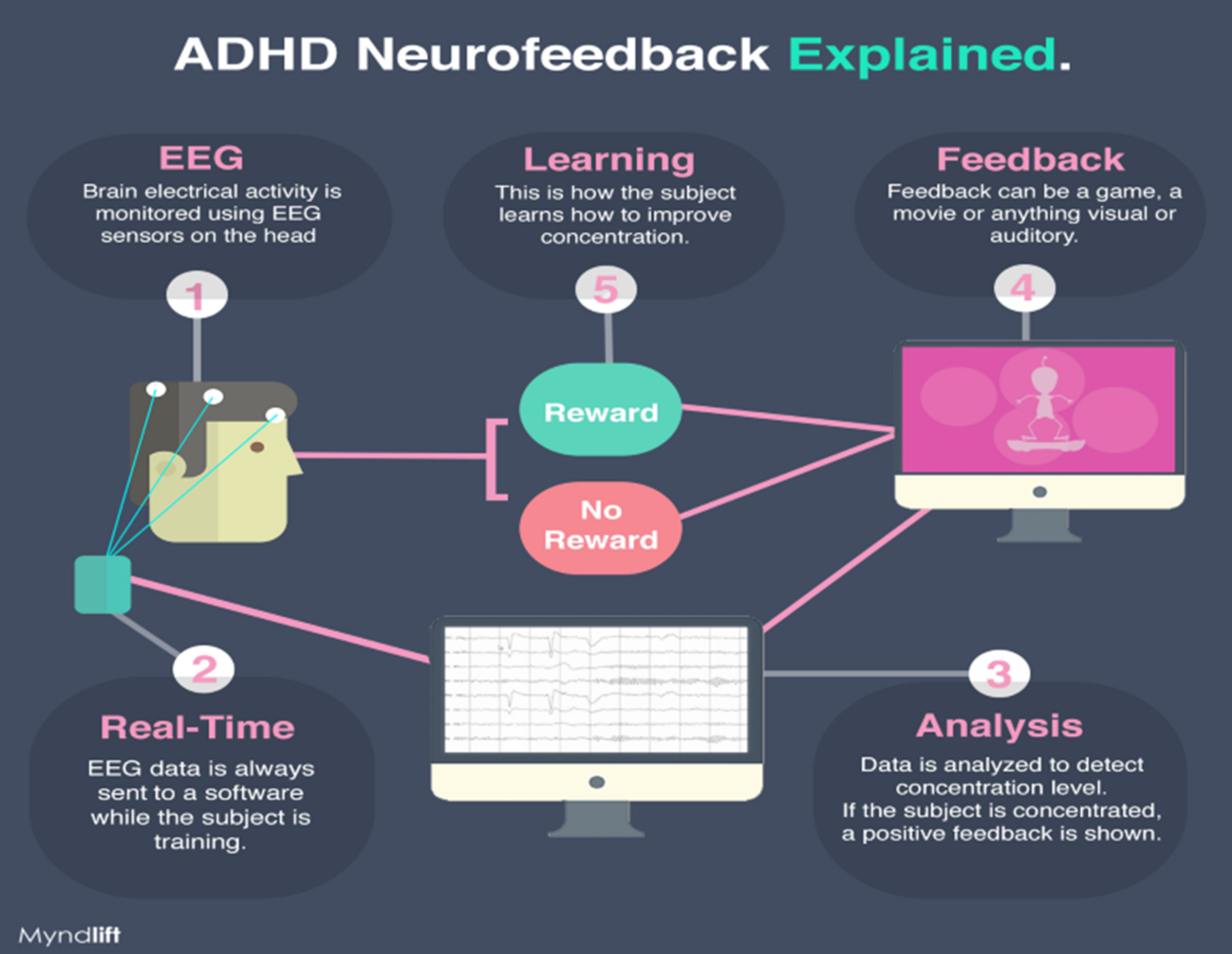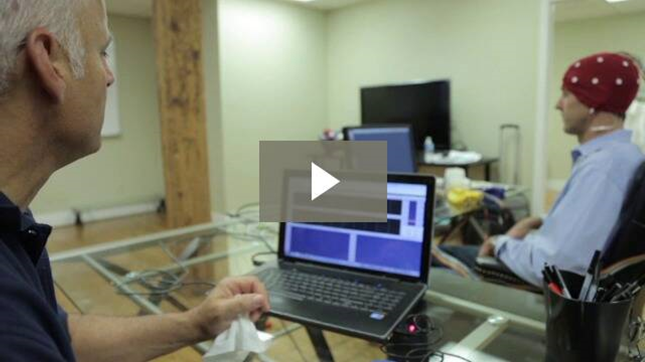What is Neurofeedback?
What is Neurofeedback?
Neurofeedback is a fun, interactive, non-invasive, medication-free treatment that helps you strengthen and retrain your brain to achieve a healthier, more focused state. In order to help balance and optimize the brain, neurofeedback—which is a type of biofeedback—uses advanced computer technology to assess brain wave activity in real-time.
Brain waves are the rhythmic electrical impulses generated when the millions and millions of neurons inside your head communicate with each other. Brain waves can reveal important information about your overall brain function, including stress levels, thought patterns, and emotions.
Who Can Benefit From Neurofeedback?
Children and adults of all ages may find neurofeedback helpful, whether it is used as solo therapy or as part of a comprehensive treatment plan. Neurofeedback can help boost focus and overall brain health not only in psychiatric patients but also in anyone who wants a natural way to optimize their brain. Neurofeedback helps you gain control of your brain waves through self-regulation, so you can achieve the desired brain state—whether the goal is to maintain concentration or to achieve a more relaxed state. The ability to achieve and maintain a certain state is key to optimizing your behavior and emotional health. It is also used as a method to enhance athletic or musical performance and to promote peak performance in the workplace. Neurofeedback has been used successfully to improve many conditions including, but not limited to:
- ADD/ADHD
- Addictions
- Anxiety
- Autism spectrum disorder
- Behavioral disorders
- Bipolar disorder
- Chronic pain
- Depression
- Headaches
- Memory problems
- Pain management
- PTSD
- Schizophrenia
- Sleep problems
- Traumatic brain injury/concussions
- PMS




